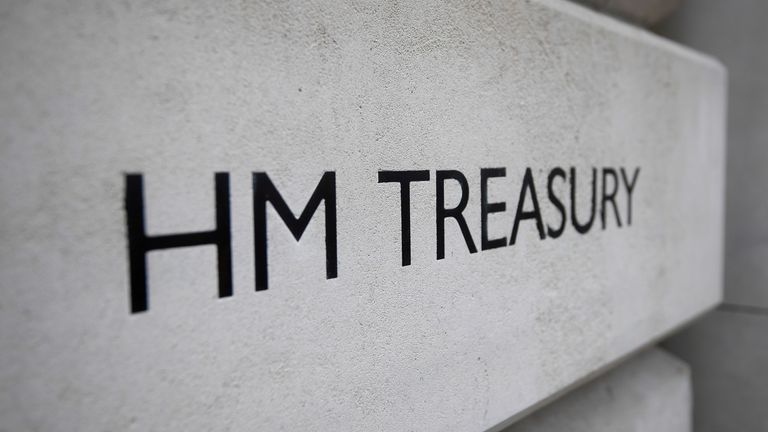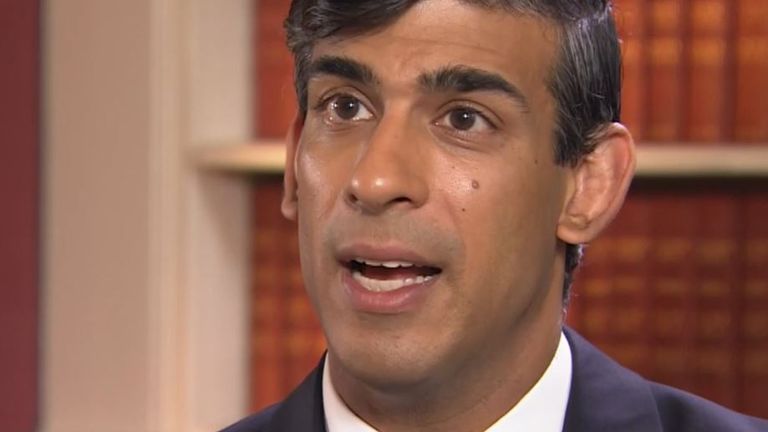Public debt has topped £2trn for the first time on record as spending soared to prop up the economy in the face of the coronavirus pandemic.
The figure at the end of July was £227.6bn higher than the same month last year, according to the Office for National Statistics (ONS).
Chancellor Rishi Sunak said it was a “stark reminder” of the need to get the UK’s finances back on an even keel after the economic turmoil of the COVID-19 crisis, which he warned would need “difficult decisions” to be taken.
The ONS data also showed borrowing had rocketed to a record £150.5bn in the current financial year as Britain sought to dampen the impact of the coronavirus emergency – £128.4bn more than between April and July last year.
Some £26.7bn was borrowed in July alone, the fourth highest amount of any month since records began in 1993.
It pushed debt to around £2,004bn for the first time in history, and means public sector debt is bigger than the nation’s entire gross domestic product (GDP) – the value of everything produced in the UK in a year.
Debt reached 100.5% of GDP at the end of July, the first time it had risen above 100% since 1961, the ONS said.
Responding to the latest figures, Mr Sunak, said: “This crisis has put the public finances under significant strain as we have seen a hit to our economy and taken action to support millions of jobs, businesses and livelihoods.
“Without that support things would have been far worse.”
He added: “Today’s figures are a stark reminder that we must return our public finances to a sustainable footing over time, which will require taking difficult decisions.
“It is also why we are taking action now to support the growth and jobs which pay for our public services, by helping businesses to reopen safely and, through our plan for jobs, protecting, supporting and creating jobs to ensure that nobody is left without hope.”
The grim economic data came as separate figures gave some hope of signs of a recovery, with retail sales bouncing back to above pre-pandemic levels, although it was a mixed picture for businesses.


